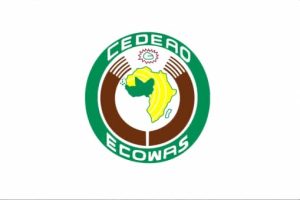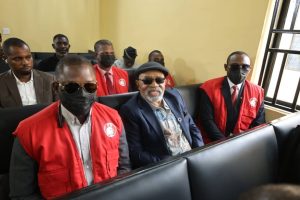By Damilare Adeleye
The Nigerian Centre for Disease Control and Prevention (NCDC) has confirmed 39 cases of Mpox, formerly known as monkeypox, in the country.
While disclosing that no death has been recorded from the disease so far, the agency added the 39 cases were confirmed in 33 states and the Federal Capital Territory, FCT.
Dr Jide Idris, Director General of NCDC, made these known at a press conference on Thursday evening, in Abuja.
The press conference was held to provide updates on the ongoing outbreaks of cholera, Mpox, and other events of public health importance.
The development came following the declaration of Mpox as a Public Health Emergency of International and Continental Concern (PHEIC) by both the World Health Organisation (WHO) and the Africa Centers for Disease Control and Prevention (ACDC).
Idris named Bayelsa as leading the 33 states with five confirmed cases while Cross River, Ogun and Lagos states, all trailed behind with four confirmed cases.
“The Nigeria Centre for Disease Control and Prevention has been closely monitoring several endemic diseases including Mpox which has been declared a Public Health Emergency of International / Continental Concern (PHEIC / PHECC) by both the WHO and the Africa Centers for Disease Control and Prevention (ACDC).
“In Nigeria, cumulatively, a total of 39 confirmed cases and zero deaths have been recorded across 33 States + FCT, from the beginning of the year 2024. Bayelsa (5),Cross River (4), Ogun (4), Lagos (4), Ondo (3), and Ebonyi (3) leading the pack. Noting the significant concern of the ease of cross-border transmission, this press conference is part of the effort to intensify our coordination and communication with stakeholders to manage the spread of the virus and prevent disease importation,”he said.
Idris also said so far, about 2,863 confirmed cases and 517 deaths across 13 African countries have been reported in 2024 alone.
According to him, “This alarming increase is linked to a new strain of the Mpox virus which emerged in eastern Congo and has since been detected in Kenya, Rwanda, and Uganda.”
He said the National Mpox Technical Working Group (TWG), a multi-sectoral body housed within the NCDC, would continue to coordinate Mpox response activities.
He added, “As part of the government’s ongoing efforts, we are intensified surveillance across Nigeria to swiftly detect and respond to any new cases.
“This putting all port health services across all five international airports, ten seaports, and 51 land/foot crossing borders on high alert.
“Diagnostic protocols according to the Integrated Disease Surveillance and Control,IDSR are now distributed to these locations and port health officers are on high alert and screening for suspected cases.
“Some states have also been put on high alert including Lagos, Abuja, Enugu, Kano, Rivers, Cross-River, Akwa-Ibom, Adamawa, and Taraba. We are also conducting contact tracing and monitoring for confirmed cases to prevent further spread.
“This will now also include declaration by travellers who have been to any of the countries where there is an ongoing outbreak of MPX in the last 90 days. Additionally, we continue to provide healthcare workers and the public with updated guidance on infection prevention and control measures and train SURGE staff as part of our preparedness and readiness for an MPX public health event.
“The NCDC is also notifying public and private hospitals about the MPX alert and sending a list of referral isolation/treatment centers across the 6 geopolitical zones and reference laboratory networks which includes NRL, CPHL, NIMR, LUTH, ACEGID, UNTH, UPTH.
“We are also considering vaccination efforts for high-risk groups, as Nigeria expects to receive 10,000 doses of the Jynneos vaccine.
“The Technical Working Group ,TWG remains committed to providing evidence-based guidance to inform the country’s next steps in safeguarding the health of Nigerians at national, state, and local government levels.”
He described Mpox as a “rare viral zoonotic infectious disease (i.e., disease of animals transmitted from animals to humans) that is endemic in several African countries including the tropical rainforests of Central and West Africa. ““The exact reservoir of the virus is still unknown although rodents, squirrels and monkeys are suspected to play a part in transmission.
“The Mpox virus can spread both from animal to human and from human to human. Animal-to-human transmission may occur by direct contact with the blood, body fluids, skin or mucosal lesions of infected animals (e.g., monkeys, squirrels, and rodents).
“This can happen through a bite, scratch, handling of, or eating inadequately cooked or other products of infected bushmeat. Human-to-human (person-to-person) transmission occurs when a person comes into contact with the virus from an infected human, or materials contaminated with the virus such as clothing, beddings,”he informed.
Speaking on the sign and symptoms of Mpox, he said the “symptoms of the illness include fever, headache, body aches, weakness, swollen lymph nodes (glands) and a rash.”
“After about one to three days of fever, the rash erupts, beginning on the face and then spreading to the body with the face and palms/soles being mostly affected. They can also occur in and around the genitals which is why contact during sex is another mode of transmission,” he added.
Speaking on public advisory, the NCDC boss said, “To prevent the spread of Mpox, we strongly urge members of the public to adhere to proven infection prevention and control measures. These practices are essential in limiting the transmission of the Mpox virus.”


























